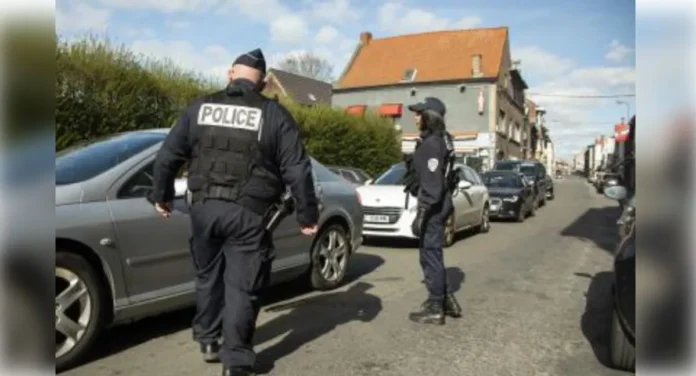
A gangland shootout erupted overnight in Poitiers, France, resulting in a violent clash involving hundreds of individuals and leaving five people injured, according to French officials on Friday.
The incident underscores the escalating challenges faced by the new government in combatting violent crime linked to drug gangs that operate in many urban areas across the country.
The violence began with a shooting at a local restaurant, which quickly escalated into a confrontation between rival gangs. “It started off with a shooting at a restaurant.”
“It ended up with a clash between rival gangs which involved several hundred people,” French Interior Minister Bruno Retailleau told BFM TV.
He confirmed that the altercation was connected to ongoing rivalries among drug gangs, a persistent issue in numerous French cities, particularly in low-income, high-rise housing estates situated on the outskirts of historical city centers.
In response to the violence, local authorities have announced the deployment of additional police forces to the area later on Friday, aimed at restoring order and preventing further clashes.
Retailleau’s comments reflect a growing sense of urgency within the government to address the challenges posed by organized crime and its implications for public safety.
The incident in Poitiers comes amid rising concerns over violent crime in France, which have influenced public sentiment and voter behavior.
The recent surge in violent incidents has been cited as a significant factor in the electoral success of Marine Le Pen’s National Rally (RN) party.
Le Pen’s party has capitalized on fears of crime and illegal immigration, promising to implement stricter measures than their political rivals.
The new government, led by centre-right Prime Minister Michel Barnier, is under pressure to take decisive action.
In a bid to shore up support, Retailleau has vowed to intensify efforts against drug gangs and illegal immigration, reflecting a broader strategy aimed at appealing to voters concerned about safety and security.
The political landscape in France has shifted following President Emmanuel Macron’s decision to hold snap parliamentary elections in June and July, resulting in a hung parliament where no party secured an outright majority.
This political impasse has allowed Le Pen’s National Rally to become one of the largest blocs in parliament, further complicating the government’s efforts to address pressing issues like violent crime.
As the situation in Poitiers develops, the authorities are faced with the task of not only responding to the immediate violence but also addressing the underlying issues of drug-related crime that continue to plague many communities in France.
The government’s commitment to tackle these challenges will be closely scrutinized by the public and may significantly influence future electoral outcomes as voters weigh their options in an increasingly polarized political environment.
The clash in Poitiers serves as a stark reminder of the ongoing struggle against organized crime in France and the critical need for effective policy measures to ensure public safety and community well-being.